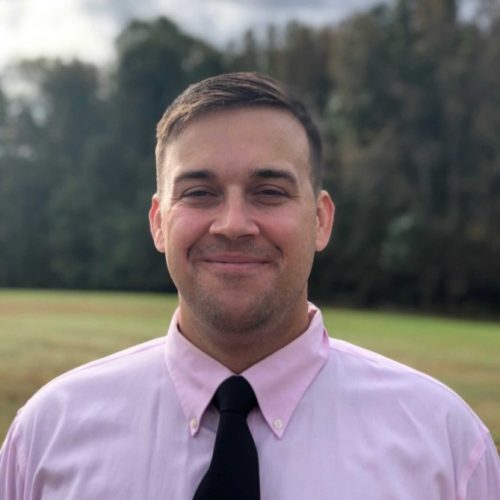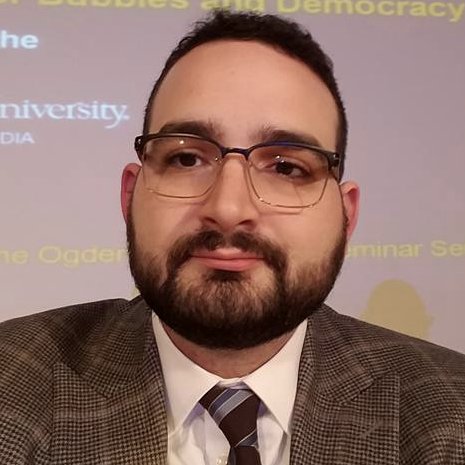[2019-07-17] Lincoln's 2018 funding breakdown and commitment to independence | local copy (html, captured 2020-09-29)
... Our current major supporters include:
Source for the following: SourceWatch.org.
The Lincoln Network received a $250,000 grant from the Charles G. Koch Foundation in 2015, the organization's first year of operations. The grant made up over 44 percent of the Lincoln Network's total revenue in 2015. The Lincoln Network also received $25,000 from DonorsTrust in 2015.
The Lincoln Network has hosted events in partnership with the Charles Koch Institute.
Staff
Source: LincolnPolicy.org [all except Aaron Ginn].
-
Having been the only Sillicon Valley member of Mitt Romney's 2012 presidential campaign, Aaron Ginn, with his cofounders, established Lincoln Network to use technology to promote liberty in the public space. He has previously led growth product management at Everlane, StumbleUpon and is known in the valley for launching and popularizing the "growth hacking movement." [Source: Forbes.comm, 2020-09-29.]

-
Marshall Kosloff is the Director of Outreach and Media for the Lincoln Network, and co-hosts The Realignment podcast. Before Lincoln, Marshall Kosloff was a researcher on PBS's "Firing Line with Margaret Hoover" and participated in the Public Interest Fellowship. Marshall Kosloff is also a Media Fellow at the Hudson Institute. Marshall Kosloff holds a bachelor's degree in political science from the University of Oregon. Marshall Kosloff lives in Washington, DC.

-
Dan Lips is the Director of Cyber and National Security Policy at Lincoln Network. Prior to Lincoln, from 2011 to 2019, Dan Lips worked on the staff of the U.S. Senate Homeland Security and Governmental Affairs Committee, including serving as the majority staff's homeland security policy director. Dan Lips' legislative accomplishments include bipartisan legislation to modernize federal information security management and to authorize the Department of Homeland Security's cybersecurity programs. Dan Lips also focused on Congressional oversight and served on the staff of the Permanent Subcommittee on Investigations. Dan Lips was the lead staff author of former Sen. Tom Coburn's final oversight report: "A Review of the Department of Homeland Security's Missions and Performance," which was featured on 60 Minutes. Dan Lips also led a bipartisan investigation into how the U.S. immigration system encourages child marriages, which received global coverage in 2019.
Before working on Capitol Hill, Dan Lips served with the Federal Bureau of Investigation, focusing on cybersecurity and intelligence. From 2000 to 2010, Dan Lips worked for federal and state think tanks, concentrating primarily on education policy, including serving as a senior policy analyst with The Heritage Foundation. Dan Lips testified before the House of Representatives in 2007 on improving educational opportunities for foster children. Dan Lips' research has been cited by the Wall Street Journal and the Washington Post. Dan Lips has served as a member of the D.C. Advisory Committee to the U.S. Commission on Civil Rights. Dan Lips was a 2018-19 Penn Kemble Democracy Forum Fellow with the National Endowment for Democracy. Dan Lips is a visiting fellow with the Foundation for Research on Equal Opportunity.
Dan Lips earned his bachelor's degree in Politics from Princeton University and his master's degree in Statecraft and National Security Affairs from the Institute of World Politics.

-
Alexiaa Jordan is a Policy Analyst for Innovation, Cyber, and National Security Policy at Lincoln Network. Previously, Alexiaa Jordan worked with the international strategic consulting firm RiceHadleyGatesManuel, LLC. Prior to that Alexiaa Jordan served as chief of staff for a member of the Illinois House of Representatives. Alexiaa Jordan holds a master's degree from Johns Hopkins University in international economics and security studies, as well as a bachelor's degree from the University of Illinois at Urbana Champaign in molecular and cellular biology. Alexiaa Jordan is also a Shawn Brimley Next Generation National Security Fellow at the Center for a New American Security (CNAS; Wikipedia) [local copy (html, captured 2020-09-29)].

-
Grace Meyer is Head of Development at the Lincoln Network where she works to identify and cultivate relationships with supporters of Lincoln's mission. Prior to joining Lincoln, Grace Meyer worked at the Cato Institute on their fundraising team. Grace Meyer holds a bachelor's degree from Hillsdale College, where she studied politics and business administration. Grace Meyer is originally from Michigan and currently lives with her husband in Washington, DC.

-
J. Scott McKaig is General Counsel and Chief Financial Officer at Lincoln Network. J. Scott McKaig received his B.A. from UNC-Greensboro in 2004 and his Law Degree and Master's in Business Administration from Campbell University in 2008. After earning his JD and MBA, J. Scott McKaig spent the first six years of his career operating his own law firm in Raleigh, NC. Since that time, J. Scott McKaig has worked in tech, clinical research, financial services and in several positions for the State of North Carolina. In 2018, J. Scott McKaig joined Lincoln Network as General Counsel and Chief Financial Officer. J. Scott McKaig also works as an Adjunct Professor in the Business Department at Wake Tech Community College and was appointed to the Tryon Palace Commission by former North Carolina Governor Pat McCrory in 2016. J. Scott McKaig Lives in Wake Forest, North Carolina with his partner Katie Riebe and their two sons, Liam (8) and Aiden (6). In his limited spare time, J. Scott McKaig enjoys spending time with his family and cooking competition BBQ.

-
Zach Graves is the Head of Policy at Lincoln Network, where he manages the policy and programming team. Zach Graves' research and advocacy focuses on the intersection of technology and governance issues, including work to strengthen science and technology expertise and capacity in Congress. Before joining Lincoln, Zach Graves was director of the R Street Institute's technology and innovation policy program, where he remains an associate fellow. Prior to that, Zach Graves worked at the Cato Institute.
[The R Street Institute was established in 2012 when its founders split from the Heartland Institute out of disagreement with Heartland's public denial of the scientific consensus on climate change. On May 14, 2012, Slate reported that the spin-off group would be dubbed the R Street Institute and quoted spokesman R.J. Lehmann as noting that, unlike Heartland, R Street "will not promote climate change skepticism."]
Zach Graves is currently a Visiting Fellow at the National Security Institute at George Mason University's Antonin Scalia Law School. Zach Graves is also a part of the Washington Post's Technology 202 Network. In 2018-2019, he was a Technology and Democracy Fellow at the Harvard Ash Center.
Zach Graves holds a master's degree from the California Institute of the Arts and a bachelor's degree from the University of California at Davis. Zach Graves is married and lives in Washington, DC.

-
Garrett Johnson is a co-Founder and Executive Director of the Lincoln Network. Garrett Johnson also co-founded SendHub.com, a venture-backed YCombinator startup launched in 2011. Garrett Johnson served as professional staff to the Ranking Member of the U.S. Senate Foreign Relations Committee, where his oversight portfolio included Afghanistan, Pakistan and Haiti. Originally from Florida, Garrett Johnson holds a bachelor's degree from Florida State University and was the two-time NCAA Shot Put champion. Garrett Johnson also read for the degree of Master of Philosophy in Migration Studies at the University of Oxford, England as a Rhodes Scholar. Garrett Johnson currently lives in San Jose, CA.

-
Sean Roberts is Chief Technologist with Lincoln Network's policy team. Sean Roberts is based in the San Francisco Bay Area with experience from places like Stanford, Yahoo, EDS, ADP, and Electronic Arts. Sean Roberts is a founding member of the OpenStack Foundation, a global organization that provides software tools for building and managing cloud computing platforms for public and private clouds.
